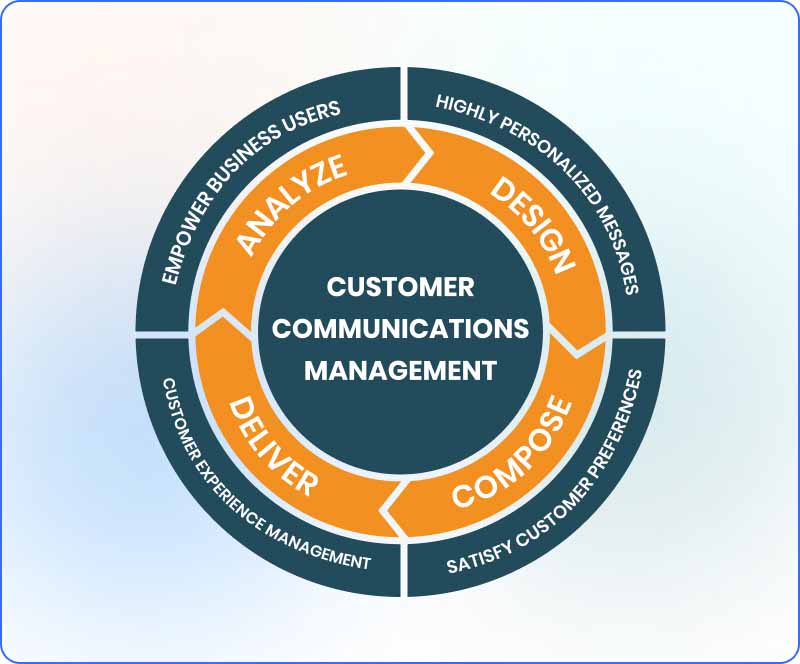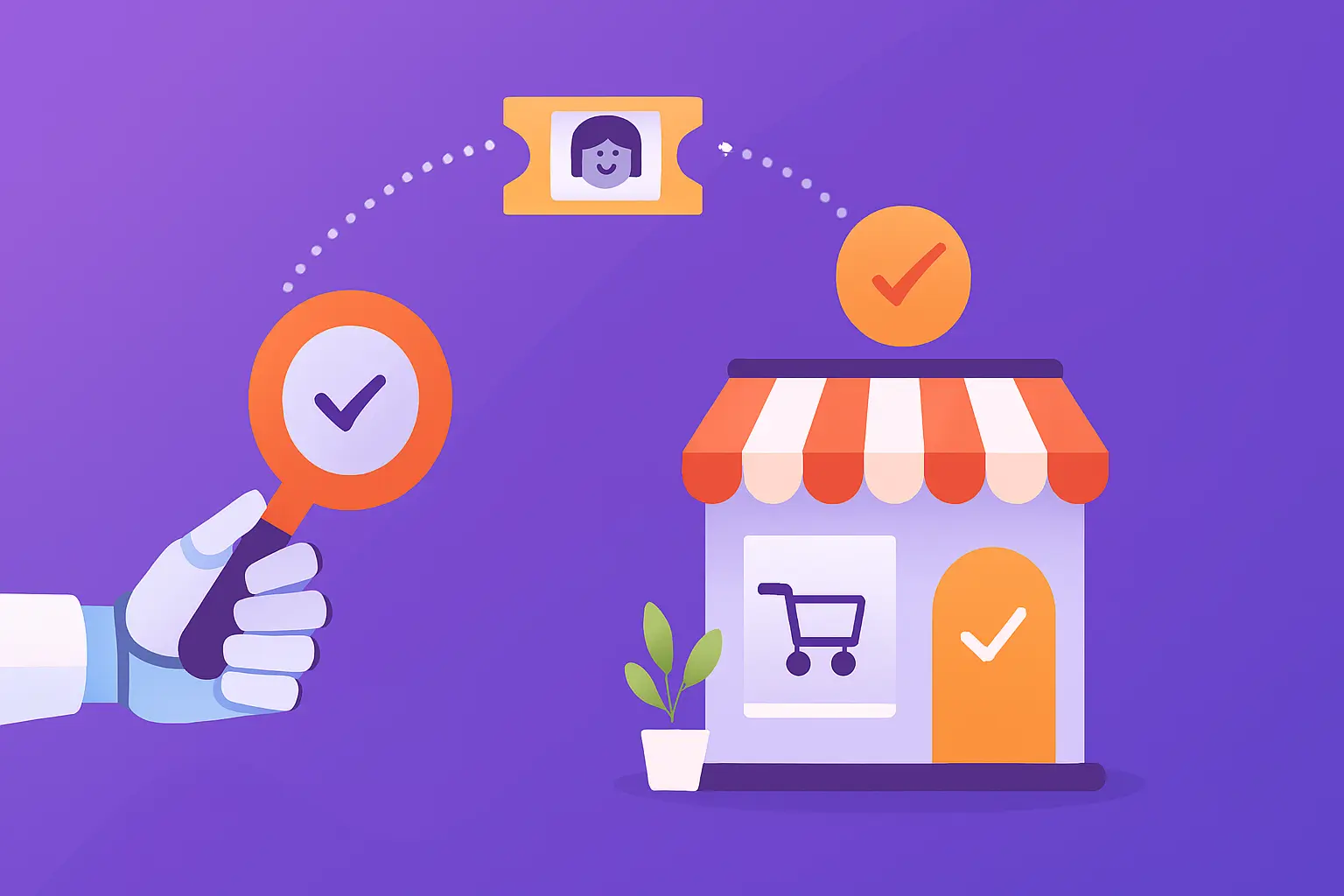10 Best Customer Communication Software for Business (2025)
- March 30, 2022
- 14 mins read
- Listen

Do you know that the cost of poor customer communication to businesses is estimated in the billions? A recent estimate claims that the cost in the U.S. alone is close to $4 billion annually. Fragmented communication channels, delayed responses, and inconsistent messaging across various platforms can frustrate customers and may lead to lost opportunities for brands. Companies often struggle to keep up with the ever-growing expectations for prompt, personalized, and meaningful interactions.
This is where customer communication software comes into play. Designed to offer centralized and streamlined interactions across multiple platforms, it enables businesses to address and resolve inquiries/issues faster, improve customer satisfaction, and maintain consistency. Deploying customer communication software acts as a secret sauce to effective customer service communication.
What all we will discuss in this blog:
- What is customer communication management
- What is customer communication management software
- Benefits of having customer communication platforms
- Top 10 customer communication tools for your consideration
- What to Look for in a Customer Communication Tool for Your Business
What is Customer Communication Management (CCM)?

Customer communication management (CCM) is defined as delivering consistent brand messaging and support across all channels by understanding customer pain points.
It also focuses on strengthening customer relationships. Having a strong communication strategy in place helps businesses to acquire and retain customers. Both B2B and B2C businesses strive for CCM solutions to design and deliver critical business communications that are highly personalized as well as interactive.
What is Customer Communication Management Software?
Customer Communication Management Software refers to an application that helps to strengthen a business communication strategy in terms of improving the creation and delivery of interactive communications.
The communication management system is a collection of computer programs that composes, personalizes, formats, and delivers content acquired from various sources into targeted and relevant electronic and physical communications between an enterprise and its customers, prospective customers, and business partners.
The main object of customer communication software is to deliver targeted communications through a wide range of media including mobile, email, SMS, Web pages, social media sites, and print.
Benefits of Effective Customer Communication Management
Effective customer communication is important for improving the bottom line of every business. Whether it is internal or external communication management, you should be able to communicate flawlessly to make it effective. If you communicate well with customers and focus on consumer messaging, your odds of success in business greatly increase by the following ways:
1. Omnichannel Customer Service
Customers expect instant and consistent communication across all the channels through which they get in touch with the brands. Be it phone, email, social media, mobile app or live chat support, companies should have a centralized platform to manage all the customer communication from a single place. Customer communication systems exactly offer the same. These platforms integrate all the communication platforms and let brands maintain consistent messaging everywhere.
2. Enhanced Customer Retention
Effective customer communication management builds trust and strengthens relationships with customers. When customers receive consistent updates and proactive support whenever they need, they are more likely to stick with your brand for business.
3. 24/7 Assistance
With the help of Customer communication software, you can offer 24/7 assistance to your customers. Automation tools like chatbots and self-service options like knowledge bases let businesses provide automated support, irrespective of different time zones and geographical barriers. Chatbots can efficiently handle common queries and offer quick resolutions to customers, while knowledge bases serve as comprehensive self-help sections filled with articles, FAQs, and step-by-step guides for customers to get self-assistance.
4. Data-Driven Insights
Effective customer communication tools offer detailed reports and analytics on various aspects like customer details, preferences, behaviors, feedback and agent performance. These insights can help you refine your strategies and improve product offerings for better performance.
5. Personalized Customer Communication
Customer communications management platforms let you deliver highly personalized interactions by segmenting your customer base. When you categorize customers into specific groups—such as based on their purchase history, geographical locations, or browsing behavior—you can craft targeted and personalized messages that resonate with each segment’s unique preferences and needs. This approach ensures that your communication feels relevant and meaningful to the customers.
Top 10 Customer Communication Management Software
Customer communication tools come handy to streamline a company’s overall business operations by automating various processes, managing customer communication in a better way from a centralized point, offering best in class and consistent customer service across multiple channels and so on. Here are our top 10 recommendations for your consideration to choose the best one for your business.
1. REVE Chat
REVE Chat is one of the best AI powered and omnichannel customer communication platforms that help businesses to streamline all customer conversations under one platform and deliver a consistent experience. It lets you offer instant assistance on your website. mobile app and other social media platforms like Facebook, Instagram, Telegram, Viber and WhatsApp. It seamlessly integrates with most of the business platforms including social media channels to offer consistent messaging everywhere.
REVE Chat also offers an AI enabled chatbot solution to many of your business operations including customer service after your business hours or when all of your support agents are busy in other important tasks.
Key Features:
- Live chat, voice and video calling to enable customers to get in touch with the brand and get instant assistance.
- REVE chatbot automates customer service and other business operations 24/7.
- Advanced ticketing system to manage customer service in a better way.
- Seamless integration with social media channels and other business platforms to offer consistent messaging everywhere.
- All customer communication can be managed from a single place.
- Detailed reporting and analytics on customer behaviour, buying patterns, other important details, agent performance etc.
- Detailed chatbot analytics to monitor and get major insights on overall performances.
- With features like Proactive Chat and Canned Responses, agents can offer assistance to customers proactively much before they even ask for it.
- Mobile support through REVE Chat mobile app.
- Advanced security and data privacy.
Cons:
- Users might need initial training to understand REVE Chat’s advanced features, but it becomes easy to use afterward.
- As a cloud-based platform, you need an internet connection to use REVE Chat.
- Limited features on the standard plan.
Want to experience REVE Chat firsthand? SIGN UP for its 14-day free trial today.
2. HubSpot Service Hub
It is a good communication platform designed to enhance customer interactions and build lasting relationships with customers. Built on HubSpot’s unified CRM, it enables businesses to offer excellent support, streamline various operations, proactively address and solve customer queries/issues efficiently.
Key Features:
- Centralized communication hub to manage all customer interactions efficiently.
- Collaboration tools ensure smooth handoffs and transparency across teams.
- Automation features prioritize tickets, reducing resolution times.
- Offer instant assistance with live chat.
- AI-powered chatbots to offer real-time help with general FAQs.
- Seamless integration with other HubSpot tools.
- Detailed analytics to refine strategies and identify areas for improvement.
Cons:
- Premium plans can become expensive
- No telephone support with free plan
- Limited third party integration options
- The inability to search for tasks can result in some responsibilities being missed.
3. Intercom
Intercom is a versatile customer communication tool that enables companies to connect with customers at every stage of their journey. Intercom combines both automation with real-time personalized communication, making it a popular choice for many of the businesses.
Key Features:
- Live chat offers real-time conversations with customers on your website or mobile app
- Proactive engagement with targeted messages based on customer behavior
- Automated response to common inquiries through AI chatbots
- personalized email campaigns
- Seamless integration with other communication channels
- Helps to build a knowledge base to offer self-services to customers
- Detailed reporting and analytics to track customer engagement, measure performance, and optimize communication strategies
Cons:
- Does not offer a free plan
- Expensive compared to alternatives
- The implementation process takes a long time
4. MailChimp
Mailchimp is a leading customer communication management platform, widely recognized for its email marketing capabilities and automation features. Apart from that it is a comprehensive marketing solution, offering tools for analytics, and multi-channel campaigns. With its user-friendly interface and various advanced features, Mailchimp enables businesses to offer personalized, impactful communications to their customers.
Key Features:
- With an intuitive drag-and-drop editor, you can design and send professional emails
- Automated email workflows based on triggers like customer behavior, events, or special dates
- customizable templates and A/B testing to monitor and optimize email performance
- Customer segmentation using detailed data on customer demographic, behavior etc.
- Gain insights into campaign performance with detailed analytics
- User-friendly interface
Cons:
- Unlimited email options feature is not available. Even the highest-tier plan imposes a cap on the number of messages that can be sent.
- Managing a larger contact base can make the platform increasingly cost-inefficient for businesses.
5. Zendesk
Zendesk is a popular customer communication platform designed to enhance support service and communication, streamline business operations, and deliver exceptional experiences to customers. Its robust suite of tools enables businesses to connect with customers across multiple channels of their preferences while maintaining a unified approach.
Key Features:
- Helps to manage all customer communications from email, chat, phone, and social media into a single interface
- Real-time chat for instant support
- Integrates with social media messaging apps like WhatsApp, Facebook Messenger, and more
- Advanced ticketing system that automates workflows and assigns tickets based on priority
- Helps to create self-service portals with FAQs, guides, and articles
- AI-powered bots handle repetitive customer queries and transfer complex issues to human agents
- Analytics and reporting to get details on customer behavior, browsing history, details etc., track agent performance metrics and their efficiency.
Cons:
- The initial setup and workflows can be complex and may require technical expertise.
- No support for video and voice chat.
- Can be a bit costly for small businesses
- Complicated interface
6. SalesForce
Salesforce provides a suite of client communication software tools as part of its Customer Relationship Management (CRM) platform. These tools are designed to streamline and enhance how businesses interact with customers across various channels. Businesses do connect with their customers across multiple communication touchpoints and the Salesforce Service Cloud integrates these channels into a single platform, ensuring a seamless customer experience.
Key Features:
- Offer real-time support on your website, app and other social media platforms
- Einstein AI helps to automate responses to common customer queries
- The Salesforce Customer Portal allows customers to find solutions to their problems through knowledge bases
- It provides tools for social listening to gather insights into customer behavior and preferences
- Comprehensive dashboards and reports to monitor key customer communication metrics like response times, resolution rates, and customer satisfaction
- All customer interactions are stored in a unified platform, enabling agents to provide personalized assistance
Cons:
- Limited data storage
- Creating and managing reports can be difficult, and they often load slowly
7. TrueDialog
TrueDialog is a powerful tool for businesses aiming to optimize their customer communication strategy. It stands out as a versatile solution for brands, offering a comprehensive set of tools for SMS, MMS, and multi-channel messaging.
Key Features:
- Mass text messaging, enabling businesses to send bulk SMS campaigns
- Offers real-time two-way conversations
- Seamless integration with CRMs, ERPs, and other software
- TrueDialog’s “Team-to-One” messaging allows multiple agents to engage in the same conversation with a customer
- It also supports MMS, allowing businesses to send images, videos, and other multimedia content.
- User-friendly interface
Cons:
- Limited features for small businesses
- Primary focus remains only on SMS
- No free plan
8. LiveAgent
LiveAgent is an all-in-one customer communication platform that helps businesses manage their customer service operations efficiently. It provides tools for multi-channel support, team collaboration, and customer relationship management, catering to businesses of all sizes.
Key Features:
- Live chat feature for real-time communication
- Consolidates customer interactions from various channels into a single, unified interface
- The ticketing system automatically converts customer inquiries into organized tickets
- A built-in call center that supports VoIP and inbound/outbound calling
- Integrates with popular social media channels
- Enables businesses to create knowledge base, FAQs, and customer forums
- Real-time reporting and analytics
Cons:
- Limited AI capability
- The design of knowledgebase can be better
- Limited integrations with CRMs
9. Kayako
Kayako is a customer communication management system designed to enhance the support experience by unifying conversations across multiple channels. Known for its simplicity and ease of use interface, Kayako helps businesses deliver personalized and real-time support, making it a go-to solution for small to mid-sized companies.
Key Features:
- Brings together customer queries from various channels—email, live chat, social media, and more into a single, centralized inbox
- Live chat assistance
- A self-service portal where businesses can create FAQs, articles, and guides for customers
- Automates repetitive tasks, such as ticket assignments, priority tagging, and follow-ups
- Offer detailed reporting and analytics to track key performance metrics
- Supports internal collaboration through shared conversations, notes, and mentions, allowing teams to work together efficiently
Cons:
- Limited customization options
- Poor user interface
- Less detailed reporting and analytics compared to other platforms
10. HelpScout
HelpScout is a customer communication tool designed to help businesses manage customer interactions seamlessly. It combines features like live chat, shared inboxes, knowledge bases, and reporting tools to ensure efficient and personalized customer service.
Key Features:
- Live chat assistance
- Proactive messaging
- A centralized inbox for teams to collaborate on customer issues
- Automated workflows to categorize, prioritize, and route customer emails
- Create self-service resources with HelpScout’s “Docs” feature
- Advanced reporting and analytics
- Connects seamlessly with most of the third-party tools
- Offers detailed insights on customer profiles, interaction history, geographical locations etc to provide personalized support
Cons:
- Limited integration options
- Smaller businesses can find it costly
- Limited reporting feature
What to Look for in a Customer Communication Tool for Your Business?
A customer communication tool is an important asset for businesses that are aiming to deliver seamless and effective customer interactions across multiple channels. Here’s what to look for while choosing one for your company:
1. Omnichannel Support
Customers expect consistent experiences across all the communication channels like email, phone calls, social media, live chat, and SMS. Look for tools that integrate all communication channels in a single platform and let businesses manage all the customer interactions from a centralized point without losing any important data.
2. Maintaining Customer Details
One of the most important features of any Customer Communication Management (CCM) software is its ability to maintain detailed customer records. A robust CCM solution should collect and organize interaction histories across all communication touchpoints in a single place, providing a complete, unified view of each customer. To ensure your customers have the best possible experience, your business must depend on these well-maintained records.
3. Automation Capabilities
Look for automation features in your client communication software tool. Companies handle several repetitive tasks on a daily basis like answering frequently asked questions, assigning tickets, or sending follow-up messages. A customer communication tool equipped with automation features, such as chatbots or ticket routing systems, can handle these tasks efficiently.
4. Integration with Other Important Platforms
A good customer communication tool should also be able to smoothly integrate with your company’s existing systems containing all the records and data. The smoother the data integration, the more satisfying will be the customer journey. The communication software should also ensure a smooth data flow across various departments within your business.
5. Scalability
You need to consider this too especially when your business is growing. A tool that can work efficiently with increasing volumes of customer interactions, addition of new customers and more integrations ensures that you won’t outgrow the software as your operations expand.
6. Personalization
The customer management system should offer features to customize communication. Look for options that let you tailor messages based on customer preferences, reflect your brand voice and resonate with individual customers. Features such as customizable templates, advanced segmentation, help businesses deliver targeted and meaningful interactions.
7. Reporting and Analytics
Good customer communication tools should offer robust analytics and reporting. You should get detailed insights related to customers and support agents, such as response times, resolution rates, industry trends, buying behaviour, geographic locations etc. that help you to measure overall performance and identify areas for improvement.
Customer Communication Management Software is a Must-Have
In the modern digital age, when you may not be able to meet your customers face to face, it becomes more critical to deploy the best customer communication management software in place. It would help your business to grow without and strengthen customer relationships. REVE Chat is one of the best customer communication software backed with advanced features to complement your customer engagement efforts. Sign up today to give your customers a great value and a better experience.
Frequently Asked Questions
Customer communication tools are software solutions designed to help businesses interact with their customers across various channels. These tools are important to manage customer interactions and offer best in class services from a single unified platform.
The main types of customer communication tools include email management tools, SMS tools, live chat tools, social media management tools, knowledge base tools and more.
These customer communication tools help to offer real-time communication, improve response times, centralize customer interactions, and enhance customer satisfaction by providing a seamless experience across all touchpoints.
While choosing the right communication tool for your business, look for key features like multi-channel communication, automation, live chat assistance, advanced analytics, CRM integration, knowledge base capabilities, and scalability to meet growing business needs.
Costs vary based on which tool you want to opt for and what kind of features it is offering. Customer communication platforms like REVE Chat offer advanced features at a reasonable price. You can check the pricing here.




